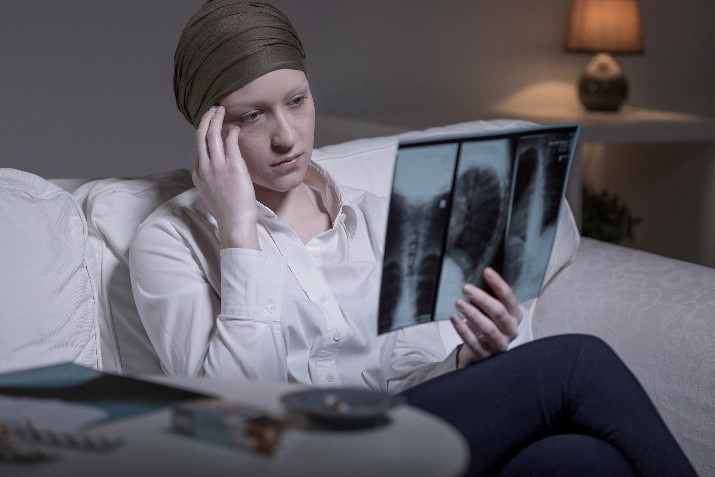It’s evident that a cancer diagnosis is likely to change your perception of life, regardless of your age, stage of life, or individual circumstances. Living with cancer can be an overwhelming experience, physically, emotionally, and mentally. A cancer diagnosis will often have adverse, challenging, and painful effects on the body. The same applies to cancer treatments and therapies, such as surgery, radiation, and chemotherapy. These treatments can cause additional symptoms of weakness, fatigue, clouded thinking, and nausea.
When someone is diagnosed with cancer, the significant impact that they feel in their body can also be coupled with a considerable effect on their mental health. 25% of people with cancer also experience depression. Cancer carries a tremendous amount of emotional weight, manifesting through fear, anxiety, and stress. While natural, these emotions may start small and manageable but can quickly become more consuming and challenging to cope with. In some cases, this can even lead to clinical depression. Continue reading to find out the signs of depression and anxiety, as well as what to do if you see these signs in yourself or a loved one.
Cancer and Depression
Unfortunately, depression is common in people with a cancer diagnosis. The American Cancer Society reports that 25% of people with cancer are also clinically depressed. Symptoms of depression can vary and include:
- Feelings of sadness, emptiness, or hopelessness
- Loss of interest or pleasure in things
- Trouble thinking or concentrating
- High levels of fatigue and exhaustion
- Slowed thinking, movements, or speech
- Nausea, stomach pains, or digestive problems
- Changes in mood, such as agitation or restlessness
- Sleep disturbances, such as insomnia or oversleeping
Keep in mind that this list of depression symptoms may also be common side effects of cancer and cancer treatments. Also, depression tends to be longer-lasting, more intense, and much more pervasive than temporary feelings of sadness. If any of these symptoms persist for more than fourteen days, it could be a sign that you or a loved one are experiencing clinical depression.
Cancer and Anxiety
A cancer diagnosis can also lead to anxiety. The anxiety that sets in may be mild, moderate, or intense. It can also vary in intensity. Some anxiety symptoms are:
- Worrying excessively and intensely
- Being restless or irritable
- Difficulties with concentration and focus
- Physical tenseness and inability to feel at ease
When someone is diagnosed with cancer, they may spend a lot of time worrying about their future, family, career, and finances. This anxiety can easily consume many aspects of their lives and make it difficult for them to function.
Intense moments of anxiety can even lead to panic attacks. Panic attacks are periods of severe anxiety that tend to last less than ten minutes. Some signs of a panic attack are:
- Increased heart rate
- Shortness of breath
- Feelings of numbness, dizziness, and lightheadedness
- Hot flashes or cold sweats
How to Cope With Cancer, Anxiety, and Depression
When someone faces a cancer diagnosis, the additional challenge of dealing with depression and anxiety can be overwhelming. Being aware of your mental health will allow you more resources to care for your physical health. Be sure to avoid negative coping skills, communicate honestly and openly with those around you, and seek help when you need it.
Negative coping skills include:
- Avoiding the issue and hoping it will go away
- Misleading others by telling them you’re fine
- Relying on alcohol or other substances to reduce feelings of depression or anxiety
Positive coping skills include:
- Accepting your feelings and behaviors
- Communicating openly and honestly with loved ones and/or therapists
- Concentrating on your physical health
Seek Help When You Need It
Cancer affects physical and mental health, and sometimes the emotional weight can be too overwhelming. In this case, it’s essential to seek help as soon as possible. At Nevada Surgery and Cancer Center, we have several resources to help you cope with cancer’s mental effects. Contact us for help today.

